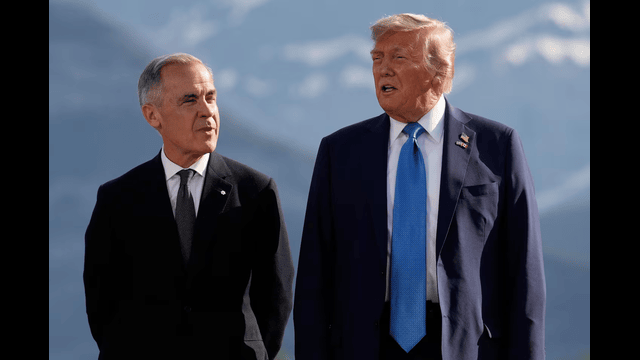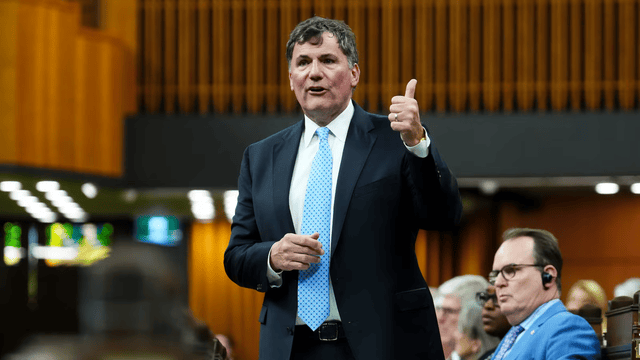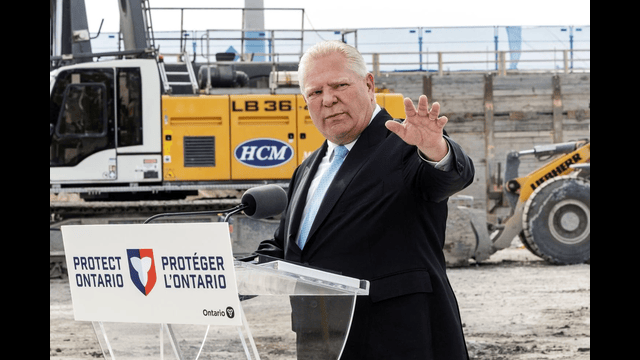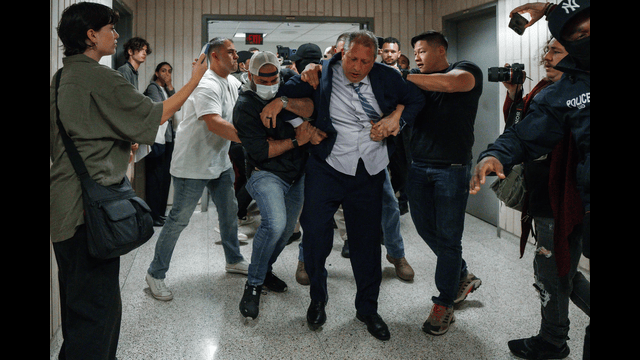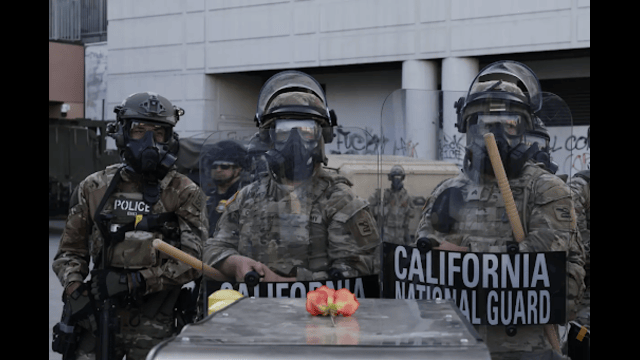
California National Guard troops and local police stood guard outside the Edward R. Roybal Federal Building in downtown Los Angeles on Thursday to ensure safety and maintain order in the area. Los Angeles Times
A U.S. appeals court stopped an order that would have forced President Trump to give control of thousands of California National Guard troops back to Governor Gavin Newsom. The 9th Circuit Court acted late Thursday, pausing a decision from a lower court that said Trump acted illegally by mobilizing the troops during protests over immigration raids.
Lower Court Rules Against Trump
A judge in San Francisco ruled Trump broke the law when he deployed the National Guard without state approval. The judge said Trump’s move went beyond his legal authority and violated the Constitution’s 10th Amendment. The judge also expressed concern about the idea that protests against the federal government could be called a rebellion.
Governor Newsom, who filed the lawsuit, called the ruling a win for democracy. He said the decision showed that democratic principles hold strong.
California’s Attorney General said the court’s ruling showed the strength of their case. He added the protests did not justify using military troops and that the troops’ arrival made things worse.
Federal Troops Stay for Now
The appeals court will hear the case on Tuesday, so the National Guard will stay under federal control through the weekend. The three judges on the panel included two appointed by Trump and one by President Biden.
Legal Arguments and President’s Authority
The Trump administration argued it had the legal right to deploy the National Guard under a law allowing the president to act during a “rebellion or danger of a rebellion.” But the lower court judge disagreed. He said the protests were not a rebellion but focused on opposing immigration raids.
The judge said Trump’s argument that courts cannot question his judgment is wrong. He reminded that the president’s power has limits and compared it to the time of King George.
Conflict Over State and Federal Powers
The law requires the president to act through state governors when federalizing the National Guard. However, California said Governor Newsom did not approve the troop mobilization. The state called the deployment a serious breach of its sovereignty.
Newsom asked the Defense Secretary to stop the deployment, calling it a move that inflamed the situation and stopped California from using the troops where they were really needed.
Protests and Military Response
The protests started after immigration raids in Los Angeles. Some protesters acted violently, leading Trump to send the National Guard and later active-duty Marines. Trump said the troops were needed to stop the riots and protect the city.
But the judge said the federal government overstepped by taking control away from the state. He noted the state and local officials were working to control the situation and that the federal government should not take over state police powers simply because it disagrees with how the state handles things.
Support from Other States
Eighteen other states and Los Angeles city officials backed California’s position in the case.


